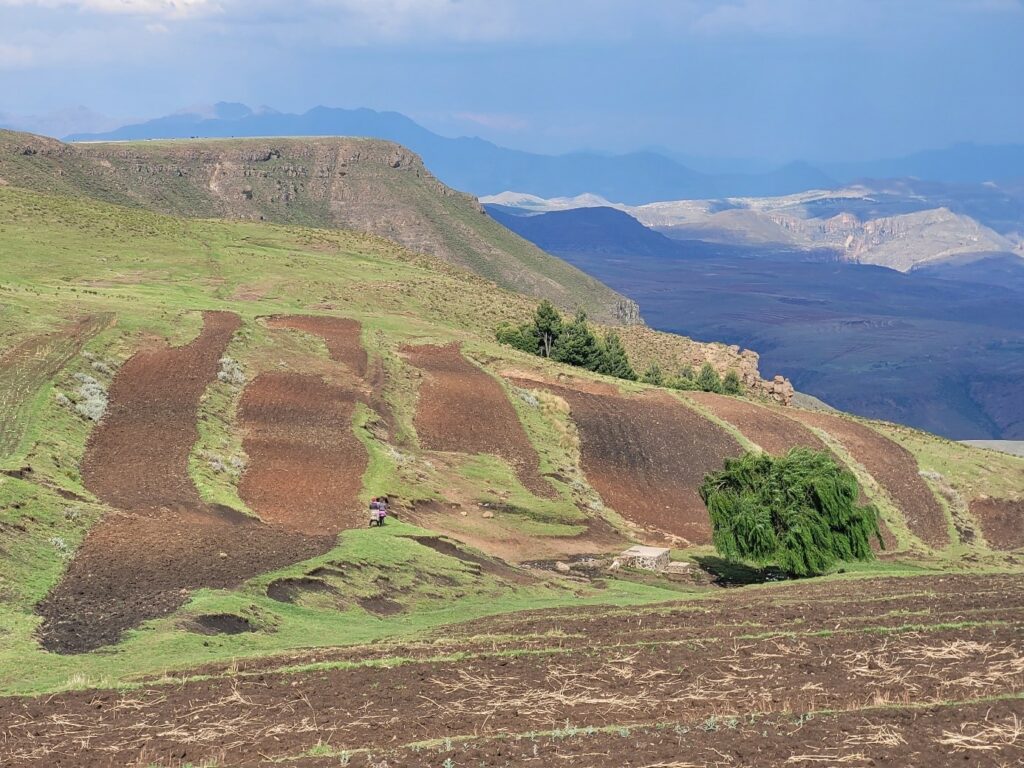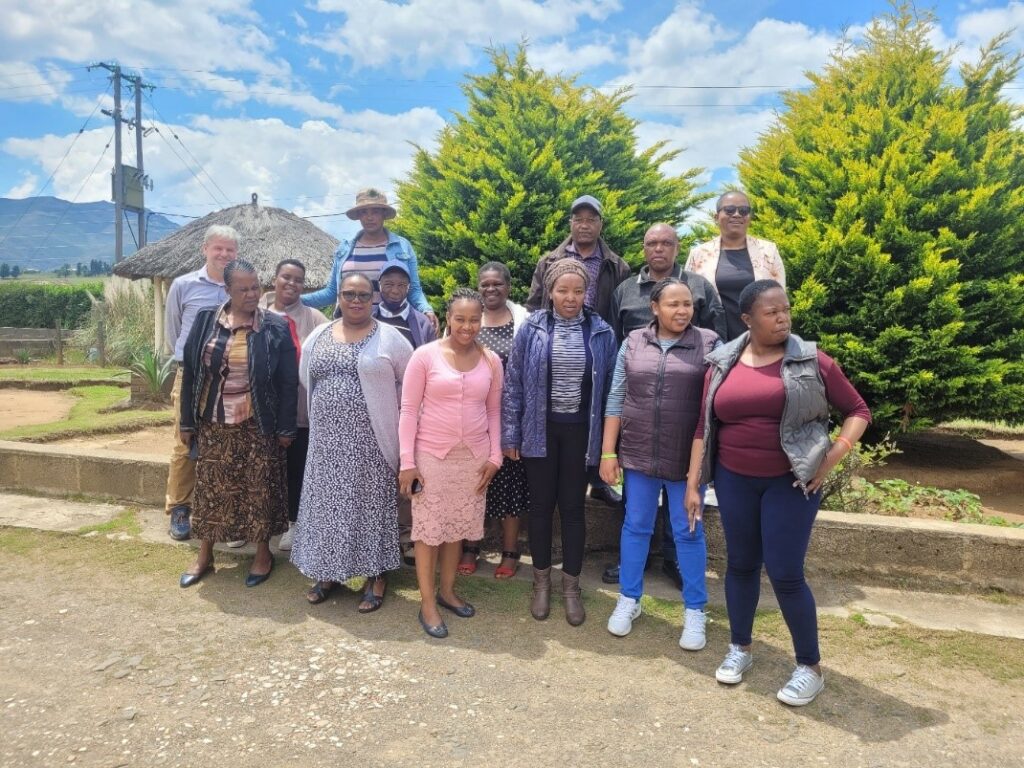Initiating the co-exploration of climate information needs in the Living Lab in Lesotho

The Lesotho Red Cross Society, supported by 510, recently established the Lesotho Living Lab. To continue the setting up of the multi-stakeholder platform in Lesotho, several meetings and workshops were held in Lesotho from 24 to 27 October. These were also joined by Micha Werner, the I-CISK coordinator.
Lesotho is a small, mountainous landlocked country that faces several challenges with climate extremes, which are exacerbated by changing climatic patterns. The Lesotho Red Cross Society is actively working in the country to improve preparedness for these extremes, and has recently established in coordination and collaboration with members of the Climate Change and Adaptation technical working group (Disaster Management Authority (DMA), Lesotho Meteorological Services (LMS), Ministry of Agriculture and Food Security and Ministry of Forestry and others), and with technical support of the Red Cross Red Crescent movement, an Early Action Protocol for drought in the context of the Forecast Based Financing (FbF) approach. Work is now ongoing towards early action protocols for other extremes such as cold spells and extreme snowfall. More recently, flash floods and wind storms have also been affecting the country.
Research in the I-CISK Living Lab in Lesotho will align itself closely with these FbF efforts. The objectives of the Living Lab were discussed with several key stakeholders, including DMA, LMS, and the National University of Lesotho, who is part of the Academic Alliance for Anticipatory Action. The Lesotho Red Cross Society Team and Micha Werner travelled to the remote town of Qacha’s Nek to meet with the District Disaster Management Team, comprising of a range of district level stakeholders. There the Living Lab was discussed and the initial steps in the co-exploration of climate information needs to support their work in reducing the impacts disasters such as droughts have were taken. These meetings form an important first step to a fully operational Lesotho Living Lab. For more information on the Lesotho Living Lab see https://icisk.eu/living-labs/food-security-drought-humanitarian-aid/[m1]
